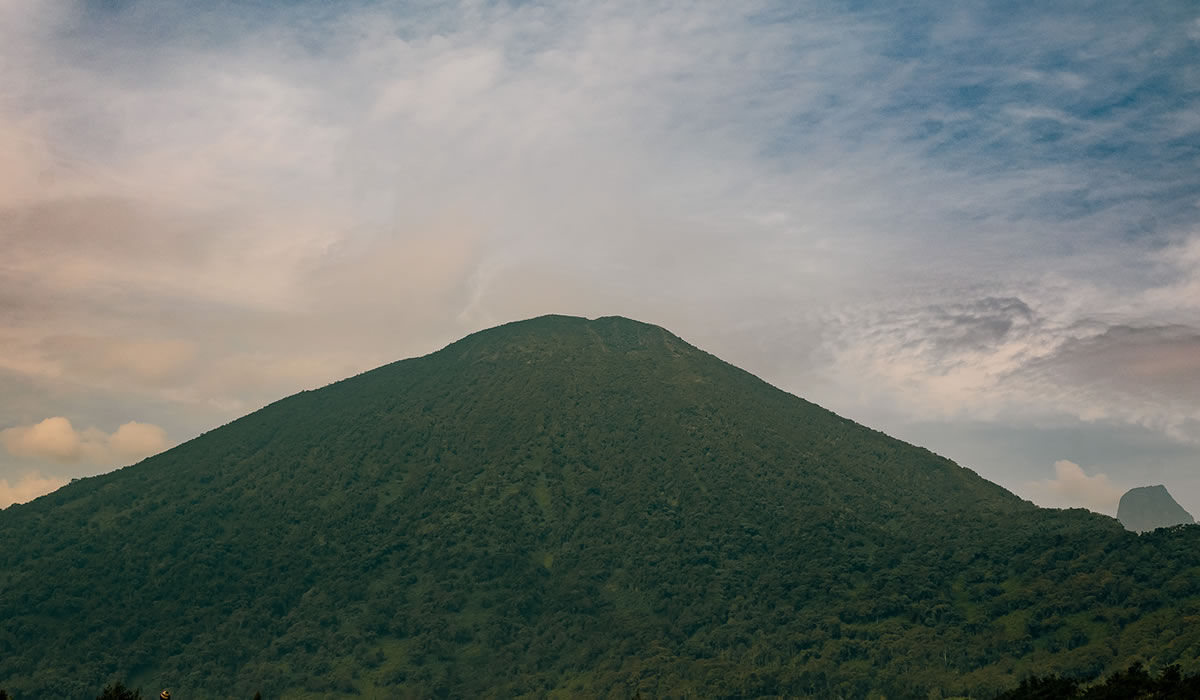Rwanda is a paradise for mountain climbing enthusiasts seeking adventure amid breathtaking landscapes. With its dramatic volcanic ranges, lush forests, and rolling highlands, Rwanda offers some of the most scenic and challenging mountain climbing tours in East Africa. The country’s terrain is dominated by the Virunga Volcanoes in the north, part of the greater Albertine Rift, which provide both thrilling climbs and spectacular views. Beyond the Virunga region, other mountains such as Mount Huye, Mount Bigugu, and Mount Kabuye also attract tourists eager to explore Rwanda’s natural wonders. Mountain climbing in Rwanda combines physical adventure with cultural immersion, wildlife encounters, and scenic beauty, making it a must-do activity for outdoor lovers.

Rwanda’s volcanic mountains are part of the Virunga Massif, a chain of eight major volcanoes that stretches across Rwanda, Uganda, and the Democratic Republic of Congo. Of these, five are located within Volcanoes National Park, namely Mount Karisimbi, Mount Bisoke, Mount Muhabura, Mount Gahinga, and Mount Sabyinyo. Each of these volcanoes offers unique climbing experiences suitable for different fitness levels.
Mountain climbing tours in Rwanda not only offer a physical challenge but also provide opportunities to encounter wildlife, including golden monkeys, forest elephants, and a wide variety of birds. Most notably, these mountains are home to the endangered mountain gorillas, and climbers often spot them during guided expeditions. The lush vegetation, scenic trails, and panoramic views of the Albertine Rift Valley make every climb a rewarding experience.
Because Rwanda is relatively compact, tourists can easily combine mountain climbing tours with other activities such as gorilla trekking, chimpanzee tracking, or wildlife safaris in Akagera National Park. The country’s excellent infrastructure, safety, and commitment to eco-tourism make it an ideal destination for adventurous tourists looking to explore Africa’s highlands.
Climbing Mount Karisimbi
At 4,507 meters (14,787 feet) above sea level, Mount Karisimbi is the highest mountain in Rwanda and the fifth highest in Africa. It straddles the border between Rwanda and the Democratic Republic of Congo, within Volcanoes National Park. The name “Karisimbi” comes from a Kinyarwanda word meaning “white shell,” referring to the mountain’s often snow-capped peak during the colder months.
Climbing Mount Karisimbi is a challenging but unforgettable two-day adventure. The trek begins at the park headquarters in Kinigi, where tourists are briefed by experienced guides before embarking on the climb. The trail winds through bamboo forests, hagenia woodlands, and alpine meadows, gradually transitioning from dense vegetation to volcanic terrain. Along the way, tourists may encounter various wildlife species, including golden monkeys, colobus monkeys, and Albertine Rift endemic birds.
The first day’s hike usually ends at an altitude of around 3,700 meters, where climbers camp overnight in designated mountain huts. The second day involves a steep ascent to the summit, which rewards climbers with stunning views of the Virunga Volcanoes, the Congo Basin, and sometimes even Lake Kivu on clear days.
Because of the altitude and steep gradients, the Karisimbi climb is best suited for physically fit tourists or experienced hikers. The best time to climb is during the dry seasons, from June to September and December to February, when trails are less slippery and visibility is excellent.
Exploring Mount Bisoke
Mount Bisoke, standing at 3,711 meters (12,175 feet), is one of the most popular volcanoes for mountain climbing tours in Rwanda. It lies on the border between Rwanda and the Democratic Republic of Congo, also within Volcanoes National Park. Bisoke is known for its large crater lake at the summit, which adds a spectacular element to the climb.
Unlike Karisimbi, Mount Bisoke can be climbed in a single day, making it ideal for tourists with limited time. The climb typically takes between 5 to 7 hours round trip, depending on weather conditions and fitness levels. The trail begins near the park headquarters and gradually ascends through bamboo and hagenia forests, home to mountain gorillas and other wildlife.
The highlight of the Bisoke climb is reaching the crater lake, whose shimmering blue-green waters contrast beautifully with the surrounding alpine vegetation. From the summit, tourists can enjoy panoramic views of the Virunga Volcano chain, including Mount Mikeno and Mount Nyiragongo in neighboring Congo.
Mount Bisoke is a moderately challenging climb, and while it requires good fitness, it does not demand technical mountaineering skills. The park provides trained guides and armed rangers to accompany all climbers, ensuring safety and a well-organized experience.
Climbing Mount Muhabura
Mount Muhabura, meaning “The Guide” in Kinyarwanda, rises to 4,127 meters (13,540 feet) and marks the border between Rwanda and Uganda. Its distinctive conical shape dominates the skyline near the town of Musanze and offers one of the most rewarding climbs in the region.
The climb up Mount Muhabura is steep and strenuous, typically completed in one day, though it requires an early start. The trail leads through grasslands and bushy vegetation before reaching rocky volcanic slopes. The path is well-marked but demanding, making it suitable for tourists with good endurance.
At the summit lies a small crater lake that reflects the surrounding mountains, offering one of the most photogenic sights in the Virunga range. From the top, climbers can enjoy incredible views of Mount Karisimbi, Mount Bisoke, and even parts of Uganda’s Mgahinga Gorilla National Park.
Mount Muhabura is also known for its cultural significance, as it once served as a landmark for ancient travelers moving between the kingdoms of Rwanda and Uganda. The climb combines physical challenge, cultural history, and breathtaking scenery, making it a top choice for adventurous tourists.
Other Mountain Climbing Opportunities in Rwanda
While the Virunga volcanoes dominate Rwanda’s mountain climbing scene, other peaks across the country offer exciting and less crowded hiking experiences.
In Nyungwe Forest National Park, tourists can climb Mount Bigugu, which rises to 2,950 meters (9,678 feet) above sea level. The trail passes through dense rainforest and open ridges that provide excellent bird watching opportunities. From the summit, climbers can enjoy sweeping views of Lake Kivu and the surrounding tea plantations.
Near Kigali, Mount Kigali and Mount Huye provide short yet rewarding hikes suitable for beginners or those looking for a half-day adventure. These mountains are easily accessible and offer panoramic views of urban and rural landscapes, giving tourists a glimpse into Rwanda’s diverse geography.
For those interested in cultural and community-based tourism, Mount Kabuye, located near Gakenke, provides a beautiful hiking experience that passes through local villages and farmlands. The mountain offers insights into Rwandan rural life and stunning vistas from its 2,700-meter-high summit.
The Experience: What to Expect During Mountain Climbing Tours
Mountain climbing in Rwanda is a guided and well-regulated experience that ensures both safety and sustainability. All climbs within national parks must be arranged through the Rwanda Development Board (RDB) or licensed tour operators. Experienced guides accompany tourists on every hike, providing valuable information about the flora, fauna, and geology of the mountains.
Climbers are advised to carry essential gear, including sturdy hiking boots, rain jackets, warm clothing, snacks, and plenty of water. The weather can change rapidly, especially at higher altitudes, so being prepared is crucial. For overnight climbs like Mount Karisimbi, camping gear is provided, and porters are available to assist with carrying equipment.
Altitude sickness can be a concern on higher peaks, so tourists are encouraged to pace themselves, stay hydrated, and allow time for rest. The trails are generally safe, and armed park rangers accompany climbers to ensure protection from potential wildlife encounters.
Best Time for Mountain Climbing in Rwanda
The best time for mountain climbing tours in Rwanda is during the dry seasons, from June to September and December to February. During these periods, the trails are drier, visibility is better, and chances of rain are minimal. The rainy seasons (March to May and October to November) can make trails slippery and challenging, although the scenery becomes lush and vibrant.
Morning climbs are recommended because the weather tends to be clearer earlier in the day. For overnight treks, such as Mount Karisimbi, starting early ensures that climbers reach their campsite before evening fog sets in.
Combining Mountain Climbing with Other Rwanda Attractions
One of the advantages of mountain climbing in Rwanda is the opportunity to combine it with other iconic experiences. Gorilla trekking in Volcanoes National Park is the most famous activity and can easily be paired with a climb on Mount Bisoke or Mount Karisimbi. Golden monkey tracking, bird watching, and cultural village tours in the Musanze area also complement mountain climbing adventures.
In the western region, tourists can combine a climb of Mount Bigugu with a visit to Lake Kivu, known for its sandy beaches, water activities, and relaxing atmosphere. For a complete adventure circuit, combining mountain climbing with wildlife safaris in Akagera National Park and chimpanzee tracking in Nyungwe Forest creates a diverse and unforgettable Rwandan experience.
Conservation and Sustainable Adventure Tourism
Rwanda has become a leader in sustainable tourism, and mountain climbing tours are conducted with great respect for the environment. The Rwanda Development Board and local communities work together to maintain trails, manage waste, and ensure that tourism benefits nearby villages. A portion of park fees supports community development projects, education, and conservation programs.
Tourists are encouraged to follow eco-friendly practices, such as avoiding littering, staying on designated trails, and respecting wildlife. Hiring local guides and porters not only enhances the experience but also contributes directly to community livelihoods.
Mountain climbing tours in Rwanda offer more than just physical adventure, they provide a chance to connect with nature, culture, and conservation in one of Africa’s most scenic destinations. Whether conquering the towering slopes of Mount Karisimbi, standing beside the crater lake of Mount Bisoke, or admiring the conical summit of Mount Muhabura, each climb tells a story of Rwanda’s resilience and beauty.
With its well-managed parks, welcoming people, and diverse landscapes, Rwanda stands out as an exceptional mountain climbing destination in East Africa. Tourists seeking adventure, challenge, and unforgettable memories will find that the Land of a Thousand Hills offers all of this and more.

